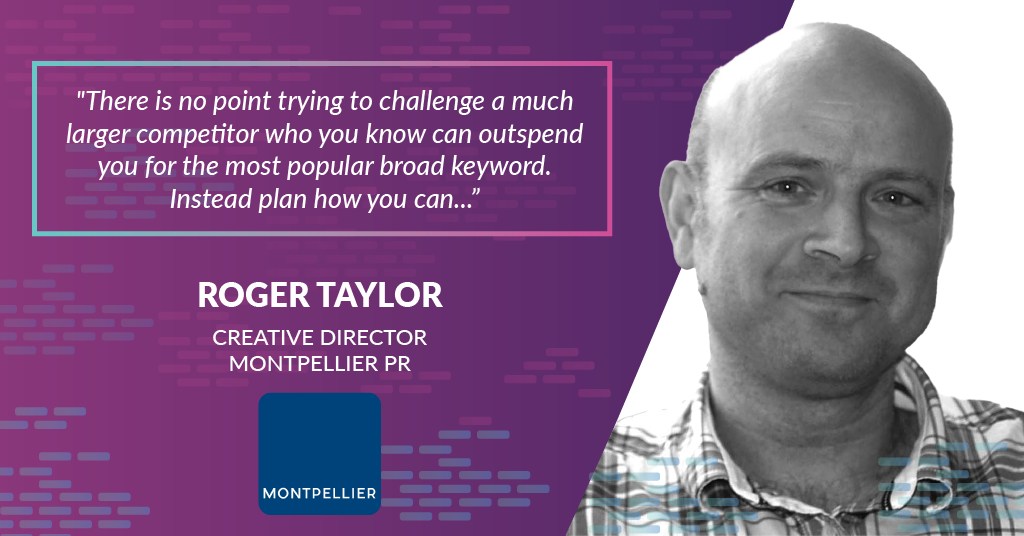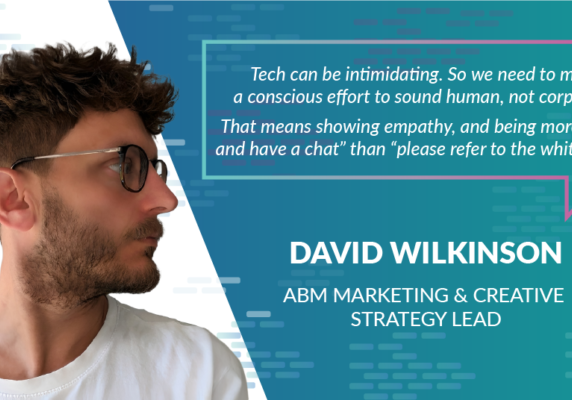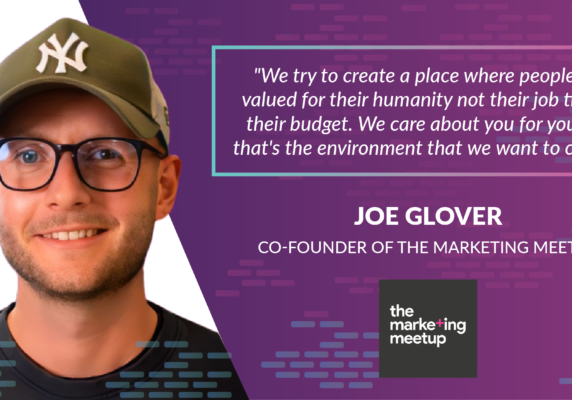The Role of Competitor Analysis in Shaping a company’s SEO Strategy
Roger Taylor is the Creative Director at Montpellier PR, an independent public relations consultancy. We discuss his SEO strategy and the delicate subject of AI in copywriting.

1. What is, in your opinion, one of the major keys to success in planning an SEO strategy?
Success needs to be measured against your key online competitors for that space. Add into this available budget and then being realistic about who is out there and pitching your self against competitors who are like you. There is no point trying to challenge a much larger competitor who you know can outspend you for the most popular broad keyword. Instead plan how you can get the largest share of that market, either by targeting the niche keyword which is relevant to your offering, or leveraging location as your niche and then dominate that space. In time, this provides a good platform to aim higher and go for more broad keywords, but it is pointless to start there.
2. What are the key metrics and factors you consider when evaluating a competitor’s SEO performance?
Once you have identified who your online competitors are (this may turn out to be different to the people who are competitors offline). Then look at what keywords they are targeting. We use tools to establish overlapping keywords with your competitors and we can use this to sift through the mass and identify who your key competitors are. Then look at their performance against your own. Where they are winning and looking to see what they are doing to achieve that. Looking at their keywords may identify new opportunities and areas you should also target. Only then can you start to plan your own strategy.
3. How often should businesses review and adjust their SEO strategies?
The overall strategy should be reviewed annually. Only if there are new product launches or new competitors entering or moving into your space would a major interim review be required. However the implementation of that strategy needs to be monitored and measured constantly and adjustments made on a weekly, or at least monthly basis depending on what your competitors are doing. When you look at your Google rankings, certain keywords may rise and fall on a daily basis. If it falls, that’s not because you have done something wrong or differently, just that one of your competitors has done something new and to maintain or grow your rankings, you need to respond to that. See it like a race with competitors jockeying for position, but also like a race don’t start a marathon as if it is a sprint.
With an organic SEO strategy, you may have 50 – 100 keywords or even more, they can’t all be at the top all the time. Instead your objective is to curate them so that you can get as many into the top ten positions as you can, and then keep them there.
4. How do you measure the success of your SEO efforts in a PR context?
With any PR article, getting traction is key and it’s the same with SEO. Many PR articles are published online in the online editions of print publications or in online only publications. On top of the original purpose of getting the message out there and in front of potential customers and building awareness, if the article includes a link back to the website (this can’t always be guaranteed) then this provides a hugely valuable backlink. At this stage, I should explain what a backlink is and why this sort of backlink is worth it’s weight in gold.
A backlink is as the name suggests ‘a link back to your website’. From the point of view of SEO, however it is much more than that; it is where the link originates from which is of key importance. A link back to your site from a well respected source such as an industry publication is like a quality mark and with it comes not just additional traffic but also the authority of the original source. This builds the ‘authority’ of your site and with that all of your keywords which are relevant to that source publication will benefit and get an additional boost in their SEO rankings.
5. Can you describe a successful SEO campaign you managed that included significant copywriting elements? What was your approach and the outcome? (only if you’re happy to share a case study)
We have a technology client who is a good example. Although the methods which we employ are similar to our other clients. Google loves genuine content, so we generate good genuine content which is well optimised to achieve the SEO goals that we set. As part of the wider SEO work that we carry out for this client, there was a specific brief to boost awareness of their product being used within branded third party products. To achieve this we needed to optimise these pages for the third party brand names that users would be familiar with. Within a three week period we were able to optimise the relevant content to place our clients’s page immediately beneath the branded third party page.
6. What trends do you see shaping the future of SEO and PR collaboration?
We have to recognise that the growth of the use of AI both for search and for content is already changing that landscape.
AI search rather than the content is however the one to watch. AI search is designed to do the sifting for you and present you with the most relevant curated answer. This means that if you aren’t well ranked for a particular term you will get no visibility at all.
Google can spot AI generated content which may be penalised, however this issue is not so much that the article is AI generated, it is more that it is simply regurgitation of content and therefore less original and relevant. Bearing in mind what I was saying about AI search, then it is clear that generating copycat content is increasingly pointless.
At the core of what Google is looking for is genuine relevant content. This is perfect for PR articles as these are precisely what Google will always want as these are often thought leadership pieces which lead the pack and aren’t just regurgitation what others have already said.
The future is original content.
Thank you Roger for sharing your insights with us.
For specific questions about PR and SEO you can contact Roger via email.







